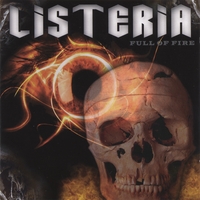 Researchers report in the latest Australian and New Zealand Journal of Health that in a survey of 586 women attending antenatal clinics in one private and two major public hospitals in New South Wales between April and November 2006, more than half received no information on preventing Listeria.
Researchers report in the latest Australian and New Zealand Journal of Health that in a survey of 586 women attending antenatal clinics in one private and two major public hospitals in New South Wales between April and November 2006, more than half received no information on preventing Listeria.
It’s long been government advice that pregnant women should avoid soft cheeses, smallgoods, raw seafood and pre-prepared vegetable salads such as coleslaw because of their potential to contain the bacteria Listeria monocytogenes.
Listeria can produce a toxin that crosses the placenta and can cause miscarriages.
Lead researcher Dolly Bondarianzadeh, from the University of Wollongong’s School of Health Sciences, said,
"In my experience, food was not high on the list of health risk topics for doctors, nurses and midwives to discuss with clients. Our results show that when it comes to food, women who have enough information and knowledge from a trusted source change their eating behaviour."
"Health professionals who deal with pregnant women should all be raising the importance of educating women about food safety in pregnancy."
The U.S. Centers for Disease Control recommendations for persons at high risk, such as pregnant women and persons with weakened immune systems, includes:
-Do not eat hot dogs, luncheon meats, or deli meats, unless they are reheated until steaming hot.
-Avoid getting fluid from hot dog packages on other foods, utensils, and food preparation surfaces, and wash hands after handling hot dogs, luncheon meats, and deli meats.
-Do not eat soft cheeses such as feta, Brie, and Camembert, blue-veined cheeses, or Mexican-style cheeses such as queso blanco, queso fresco, and Panela, unless they have labels that clearly state they are made from pastuerized milk.
-Do not eat refrigerated pâtés or meat spreads. Canned or shelf-stable pâtés and meat spreads may be eaten.
-Do not eat refrigerated smoked seafood, unless it is contained in a cooked dish, such as a casserole. Refrigerated smoked seafood, such as salmon, trout, whitefish, cod, tuna or mackerel, is most often labeled as "nova-style," "lox," "kippered," "smoked," or "jerky." The fish is found in the refrigerator section or sold at deli counters of grocery stores and delicatessens. Canned or shelf-stable smoked seafood may be eaten.
The USDA risk assessment for listeria is ready-to-eat foods is available here
http://www.fsis.usda.gov/OPPDE/rdad/FRPubs/97-013F/ListeriaReport.pdf
and one from the World Health Organization is here.
http://www.who.int/foodsafety/publications/micro/mra_listeria/en/index.html
